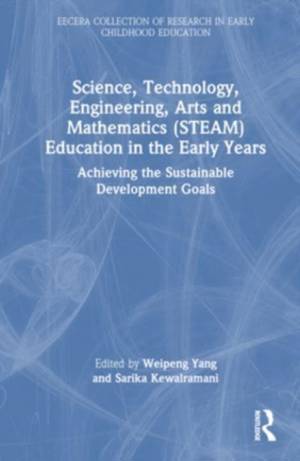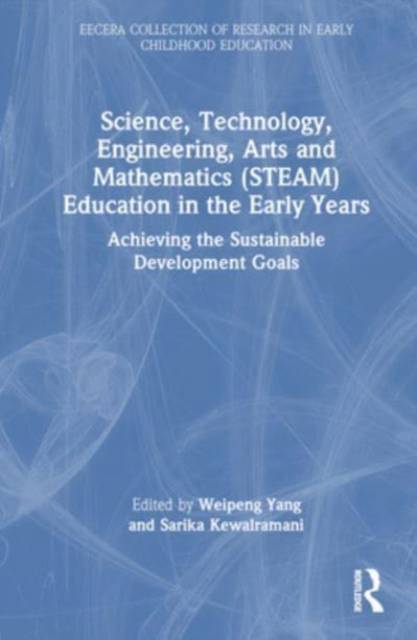
- Afhalen na 1 uur in een winkel met voorraad
- Gratis thuislevering in België vanaf € 30
- Ruim aanbod met 7 miljoen producten
- Afhalen na 1 uur in een winkel met voorraad
- Gratis thuislevering in België vanaf € 30
- Ruim aanbod met 7 miljoen producten
Science, Technology, Engineering, Arts, and Mathematics (Steam) Education in the Early Years
Achieving the Sustainable Development Goals
Omschrijving
This book provides a fresh perspective on recent debates around integrating STEAM (Science, Technology, Engineering, Arts, and Mathematics) education in early childhood.
The book offers inspiration and practical advice for educators and researchers. It suggests concrete ways to engage young children in STEAM learning activities and promote their development. With contributions from international experts, the book discusses how to develop age-appropriate STEAM learning activities for young children. Divided into four parts, the book covers a wide range of topics, including the perceptions and practices of STEAM education among early childhood teachers in different countries, the use of new pedagogies and technologies to promote equitable and accessible STEAM education, the role of teacher education and policy in reducing inequality in STEAM education, and how early STEAM education can promote social change and achieve sustainable development goals. The book highlights the importance of STEAM education in providing young children with the necessary skills to create a more sustainable and equitable world. Overall, this book provides an important contribution to help critique and improve how early childhood educators view and practice STEAM education across cultures. It proposes ideas for achieving sustainable development goals through high-quality early STEAM education.
The book appeals to early childhood educators and researchers, as it draws on cross-cultural viewpoints to critically examine how teachers understand and implement STEAM education across different cultures along with exploring how cultural values and goals shape early STEAM education.
Specificaties
Betrokkenen
- Uitgeverij:
Inhoud
- Aantal bladzijden:
- 268
- Taal:
- Engels
- Reeks:
Eigenschappen
- Productcode (EAN):
- 9781032405698
- Verschijningsdatum:
- 5/12/2023
- Uitvoering:
- Hardcover
- Formaat:
- Genaaid
- Afmetingen:
- 156 mm x 234 mm
- Gewicht:
- 589 g

Alleen bij Standaard Boekhandel
Beoordelingen
We publiceren alleen reviews die voldoen aan de voorwaarden voor reviews. Bekijk onze voorwaarden voor reviews.










